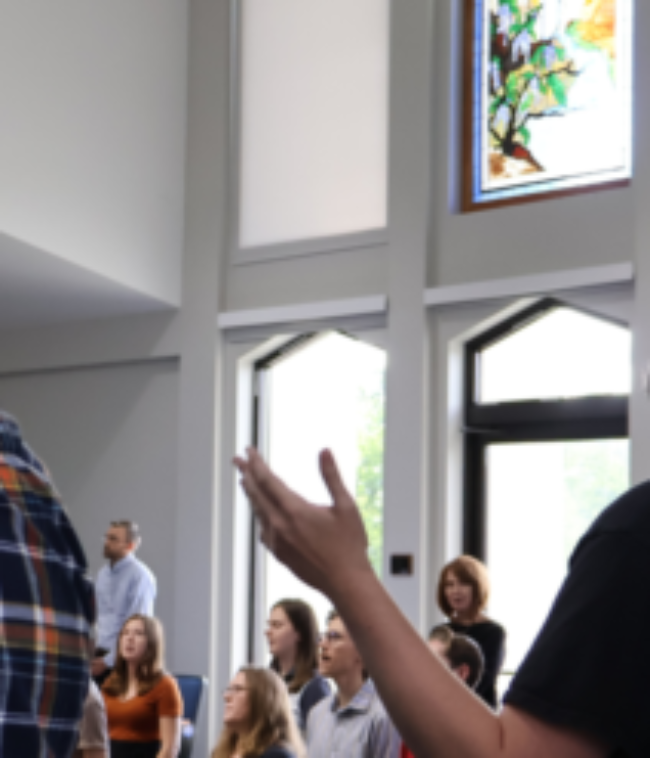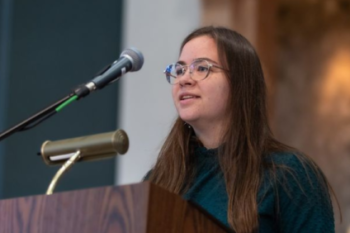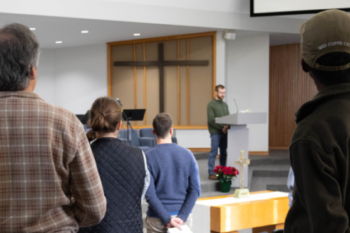Our Part in God’s Mission
Take a minute to imagine what an “ideal” world would look like. You might start by thinking through various ways in which our world falls short: conflicts on every level, from international to local to domestic; insanely abundant resources in the hands of a very small minority while 700,000,000 people try to survive on less than $2 per day; untreatable diseases that destroy bodies and minds; mental and emotional illnesses that rob millions of people of hope and vitality; homelessness; harmful addictions; rampant self-centeredness; racial discrimination; the destruction of the environment; and the list goes on. It’s easy, and kind of depressing, to come up with a list of the problems we face.
It’s not as if no one is doing anything about these things. For every problem I’ve listed, there is some organization, either governmental or nonprofit, secular or religious, that was founded to help solve or mitigate the problem. It’s just that, despite our best intentions and efforts, the problems not only persist but seem to grow larger.
But in the “ideal” world, these problems are gone. There are no major conflicts. People understand and work with one another. Countries get along. Communities get along. Families get along. People have enough resources not only to survive but to thrive. Our air and water are free of harmful substances. Animal and plant species abound. Everyone is healthy in body and mind.
You get the picture. It’s great to think about – but it also feels like a pipe dream.
Enter the missio Dei, the Mission of God. It was Karl Barth who, in 1932, proposed that it wasn’t just the Church that had a mission; God himself had a mission. A couple of years after that, German missiologist Karl Hartenstein began to use the term missio Dei to talk about mission as an activity of God himself, based on the very nature of the Trinity, in which God the Father not only seeks to redeem his creation but sends His Son to make it happen through the power of the Spirit. Neither Barth nor Hartenstein invented the concept – they merely recognized it as a biblical theme and gave expression to it.
Think about it this way: the world that God created was in an ideal state. There were no conflicts. There was no disease. There were ample resources for not just humanity, but all creatures to live and thrive. God and humankind related to each other as we were meant to. The ideal was the world’s reality.
But then came rebellion. And because of our broken relationship with God, our relationships with other people and the rest of creation also became broken. And so, we find ourselves where we are today.
But God has a mission to restore that ideal state, to bring about reconciliation between Himself and his creation as well as among His creatures – especially human creatures.
So why does this matter? What does this pithy little Latin phase have to do with our lives or the activities of a local congregation? Doesn’t it merely emphasize the fact that our own efforts are futile, and we need to leave the world’s problems in the hands of God, who seems to be taking His own sweet time in fixing it all?
But the Bible shows us that God has invited Ηis people to take part in those restoration efforts. In the world of missiology, we say that “missions” are the endeavors of the church to participate, in various ways, in God’s overarching mission to restore all of creation to Himself. But of course, our own efforts, apart from the empowerment of God’s Spirit, will always fall short. No individual or organization, including the Church in either its local or universal form, can bring about this ideal world. Mercifully, we have not been called to bring the Kingdom of God about on our own-only to participate in what God is already doing.
This idea of our being participants in what God is doing in the world has been revolutionary in many ways. In the first place, we see that God wants to bring about shalom, that is, wholeness or completeness in the lives of individuals and communities. This means that, like God’s mission, our mission needs to touch every aspect of a person’s life – spiritual, emotional, physical, and social. It is never enough simply to equate our ministry with making converts. The ill-effects of humanity’s rebellion have marred the very image of God in everyone, and it is our privilege to help them reclaim that image.
And so, God has given his people gifts for ministry. Paul shared several different examples of the kinds of gifts people have, things like evangelism, teaching, prophecy, utterance of knowledge, encouraging, leading, giving, etc. One of our jobs at Emmanuel is to help students discern those areas in which God has gifted them in ways that will allow them to make their own contributions to His mission.
One encouraging sign is that God’s people have become more and more creative in their mission efforts. Over the past fifty years, beyond the traditional evangelism/church planting approaches, we’ve seen the emergence of things like business as mission, trauma-based missions, music-based missions, drama-based missions, Bible translation, medical missions, missions for refugees, justice-based ministries, an explosion of campus ministries, hospice ministries, missions geared toward the victims of human trafficking, counseling ministries, home-building ministries, disaster relief efforts, well-digging, agricultural missions, ministries for the handicapped, ministries for the elderly, educational ministries, environmental ministries, and the list goes on and on and on. We cannot look at these as being in competition with one another or rate some as being more important or foundational than others. Each kind of ministry is an attempt to use our own particular gifts and passions to take part in a different aspect of God’s overall mission of reconciliation and renewal.
The other thing that the missio Dei leads us to understand is that this mission is not the property of the western church. In fact, there are now far more Christians in the global South (Africa, Asia, and South America) than there are in western nations – and those Christians have their own contributions to make in mission that may not look like how we’ve done it over the past 200 years. It is no longer “the West reaching the rest,” but “the church everywhere reaching out everywhere.”
We may not experience the ideal world that God is moving us toward during our lifetimes, but each of us has a part to play in using the gifts God has given us to move toward that ultimate goal. May we all be open to the leading of God’s Spirit as we each discover how to make our own contribution.





